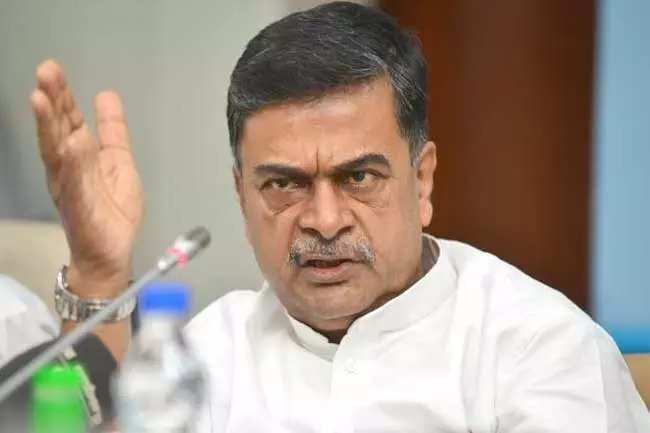
New Delhi: To give further boost to the electric vehicle (EV) adoption in the country, the government is considering to introduce another production-linked incentive (PLI) scheme for batteries, Union Minister of Power, New & Renewable Energy, R K Singh said on Monday.
“We have come up with PLI for manufacturing of batteries, we are going to come up with another PLI. We need to reduce the price of storage. The West kept talking about importance of reducing carbon emissions, but they did not do anything about reducing storage cost. The price of storage will come down only if we add volume, and that is why we are coming out with another PLI to increase manufacturing, capacity and volumes,” he said at the launch of OMI Foundations’ EV-Ready India Dashboard.
In May 2021, the central government had approved the PLI scheme for manufacturing advanced chemistry cell (ACC) batteries at an estimated outlay of INR 18,100 crore, with the primary objective of attracting foreign and domestic investment of INR 45,000 crore.
ACCs are the new generation of advanced storage technologies that can store electric energy either as electrochemical or as chemical energy and convert it back to electric energy as and when required.
With India’s commitment towards renewable energy and achieving net-zero by 2070, energy storage is expected to play a crucial role in the overall energy ecosystem.
According to a recent CII report on ‘Raw materials for Battery & Component Manufacturing’, the ACC battery market demand in India is expected to grow at a CAGR of 50% from 20 GWh in 2022 to around 220 GWh by 2030. The growth is expected to be supported by the thriving local battery manufacturing industry and a robust local supply chain.
Under the PLI-ACC scheme, a total of 50 GWh ACC manufacturing capacity had been allocated to four successful bidders in March 2022 through the request for proposal (RFP) and competitive bidding process. However, one of the previously awarded bidders had been disqualified due to non-compliance with the stipulated terms and conditions of the RFP and bid documentation.
The other three beneficiaries are Ola Cell Technologies Pvt. Ltd, ACC Energy Storage Pvt Ltd, and Reliance New Energy Battery Storage Ltd. With a target to achieve 50GWh production by 2030, this disqualification left 20 GWh of ACC manufacturing capacity available and unclaimed.
Last month, at ET Smart Factory Summit 2023, Dr. Hanif Qureshi, Joint Secretary of Ministry of Heavy Industries, said, “Out of the government’s target of 50 GWh, 30 GWh has already been given and by next month, the remaining 20 GW will also come out.”
The Union government earlier stated that the commercial production under the scheme is likely to commence in phases, from the current financial year.
EV adoption in India
Union Minister RK Singh believes that switching to electric mobility is of absolute importance for the country, and a primary reason to push towards EVs is that we cannot be energy -dependent. “We want to move up from 5th largest to 3rd largest economy and increase our heft in strategic affairs. This requires energy independence, which is the primary reason for EVs.”
According to him, EV adoption in India faces two major challenges – high cost and range anxiety. While the new ACC scheme is directed towards reducing the costs, range anxiety can be resolved by improving battery chemistries and increasing EV charging infrastructure.
He noted that India is lucky to have “some lithium reserves in Jammu”, however suggested the need to shift away from lithium to other battery chemistries.
“80% of the lithium reserves are tied up by one country, and 88% of lithium processing is located in one country. Supply chain issues have now come to the forefront. What needs to be done is to shift away from lithium to other chemistries, such as sodium ion. Alternative chemistries are absolutely essential for security of supply chain,” he said, while asking the industry to invest in research in alternate chemistries.
“Supply chain issues are strategic issues. Having alternative chemistry will also help in security of the supply chain of storage,” he said.
At the recently concluded SIAM Annual Convention, Kamran Rizvi, Secretary, Ministry of Heavy Industries, talked about the role of Government support in the form of subsidies under the FAME scheme. He said that while some countries, like China, and the UK, are withdrawing or reducing EV subsidies, India is continuing to spend more money to support the EV industry. However, the industry was also encouraged to collectively advance with a subsidy-free business model.
The Government is also promoting the adoption of Hydrogen technologies as part of its push for clean mobility.

















